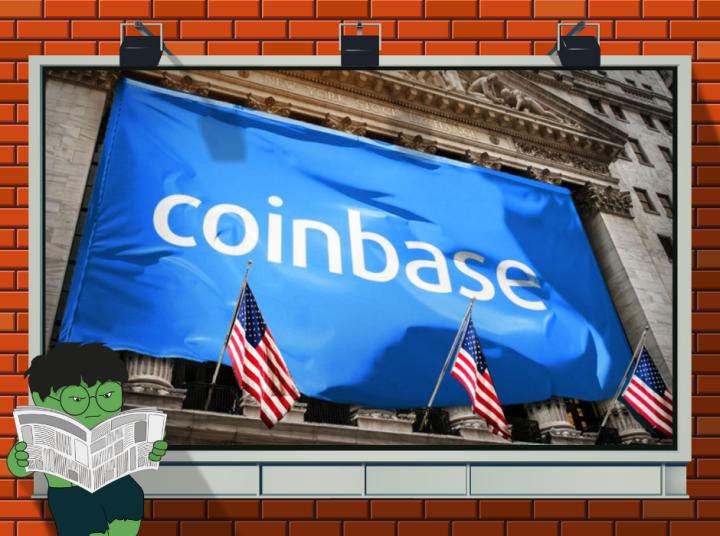First it was Bitcoin, then Ethereum, and now Solana. ETF issuers will do whatever it takes as long as they believe they can make money.
One of the major news in cryptocurrencies this year has been the approval and trading of spot exchange-traded funds (ETFs) in the US. They have been a huge success. Not only have Bitcoin ETFs attracted $16 billion in inflows in half a year, the price of Bitcoin (and therefore the price of these ETFs) has also risen by 46%. The success of the ETFs has been so evident that BlackRock CEO Larry Fink has come out and said that he now likes Bitcoin (and not just because it makes money for his company!). In a recent interview with CNBC, Fink said: "I was wrong five years ago. I believe Bitcoin is a legitimate financial instrument."
To be sure, IBIT’s AUM is still minuscule compared to BlackRock’s total AUM (if you subtract IBIT’s AUM ($18 billion) from BlackRock’s total AUM of $10.6 trillion, you’re still left with $10.6 trillion). Still, Fink’s comments further legitimize Bitcoin in the eyes of baby boomer financial advisors, as firms like BlackRock and Fidelity (still waiting on Vanguard) recognize Bitcoin as a legitimate asset that can have a place in a portfolio.
So, at least in that sense, Bitcoin is here to stay. So what’s next? The Ethereum spot ETF, which is likely to start trading next week and is expected to be successful as well (although on a smaller scale than the Bitcoin ETF). And after that? The Solana ETF, of course.
Over a Billion, 300 Million, Trillion, 300 Million ETFs While I personally still maintain that Bitcoin is different from other cryptocurrencies and is the only one that has concretely achieved its stated goals, I think it is a major mistake to assume that Bitcoin has any specialness in the eyes of high finance and Wall Street, and ETF issuers. The US ETF market is huge. Check out the Investment Company Institute stats for 2023: $8 trillion in assets; 218 companies offering ETFs; 3,108 ETFs total! And for good reason. ETFs make it easy to build a portfolio based on your investment thesis. For example, if you want to invest in healthcare or consumer discretionary, there are ETFs for that sector. Let's say you are young and want to put most of your portfolio into the tech-heavy Nasdaq 100 index. Just buy a batch of Invesco's ETF QQQ, which tracks that index. Whatever your idea, there is an ETF for that sector.
They even have ETFs to accommodate more interesting and potentially absurd ideas. Let’s say you’re young and want to put most of your portfolio in the Nasdaq 100, but want to get rich three times as fast. You could buy TQQQ, which is the same as QQQ, but can go up (and down) three times as fast as QQQ (this is achieved through debt, or leverage, hence the name “triple leveraged ETF”). What if you want to buy an ETF that even Jesus would like? Try WWJD. Do you believe there is virtue in sin and want to invest in worldly sin? Try VICE. What if you absolutely hate the investment advice of Jim Cramer on CNBC? Try SJIM, the Reverse Cramer ETF, which follows the exact opposite of Cramer’s advice (not for nothing this ETF no longer exists, but it used to exist!). With this in mind, it’s clear that there will never be a “Bitcoin ETF is the only ETF that exists because Bitcoin is better than the others and the SEC knows it.”
Two years ago I wrote :
“If the SEC decided tomorrow that Bitcoin was a security, it wouldn’t change anything fundamentally about Bitcoin. It wouldn’t change the egregiousness of market manipulation in Bitcoin. It would just change who thinks they can regulate it at this moment in time.”
Philosophically, whether cryptocurrencies are securities or not didn’t matter then, and it doesn’t matter now. So now that a Bitcoin spot ETF has landed in the U.S., it’s Ethereum next, and then the next, and the next, and the next, until we finally stop and ask ourselves: what exactly is stopping the potential launch of a meme coin ETF ? Before answering “meme coins are securities,” remember that many ETFs have securities in them (QQQ, TQQQ, WWJD, VICE).
As long as regulators allow new, compelling cryptocurrency ETFs, then the companies offering ETFs will continue to offer them to the market because that is how ETF providers make a living. They make ETFs, investors buy them, and providers earn fees managing them. While it may seem like right now that if it looks like a duck and quacks like a duck, it will be stuffed into an ETF like a turkey duck, I believe that investors and/or regulators will eventually calm down. Even if it takes a Duckley ETF to make that happen.







